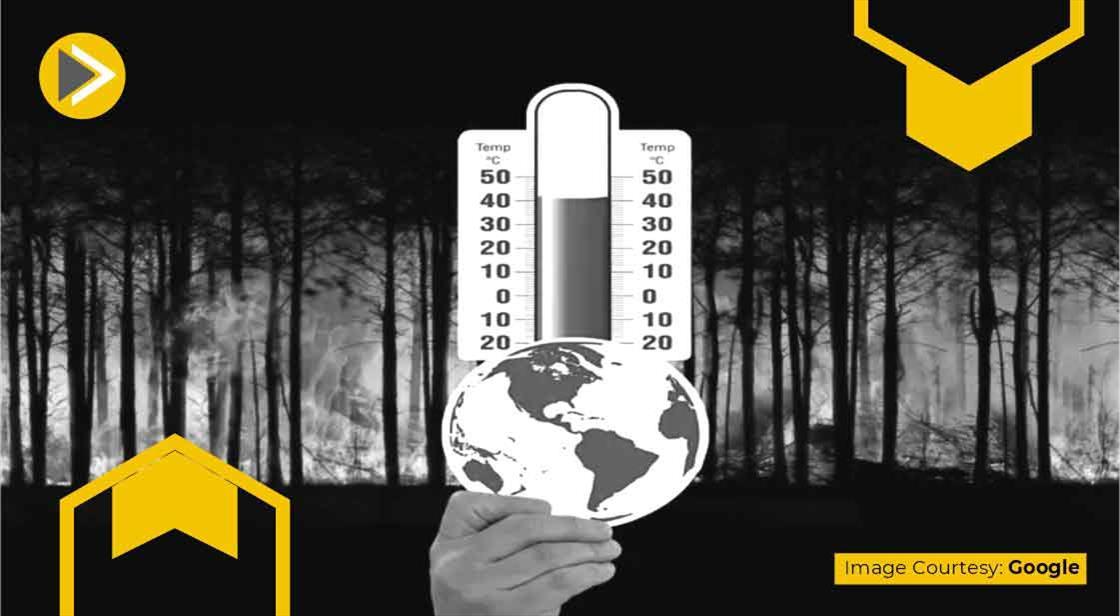Global Economy at Risk: 4°C Temperature Rise Could Cut GDP by 40% by 2100: Study

News Synopsis
A groundbreaking study conducted by researchers at the University of New South Wales (UNSW) Institute for Climate Risk and Response (ICRR) has issued a stark warning about the economic consequences of climate change.
According to their findings, a 4-degree Celsius rise in global temperatures could result in a 40% reduction in world GDP by the year 2100, a dramatic increase from previous estimates that suggested a decline of around 11%.
Published in the journal Environmental Research, this study significantly alters the understanding of climate change's economic impact and calls for a more urgent response to mitigate global warming. It highlights the vulnerabilities of global supply chains and underscores why current economic models may have severely underestimated climate risks.
Why This Study Is Different from Previous Climate Models
The Flaws in Traditional Economic Models
Historically, climate economic models have focused on direct damages caused by extreme weather events—such as hurricanes, droughts, and floods—while largely ignoring the broader, global ripple effects that these disasters can cause.
However, the University of New South Wales (UNSW) Institute for Climate Risk and Response (ICRR) study challenges this conventional approach by considering how climate-related disruptions in one part of the world can have cascading effects across global supply chains. This results in far more devastating economic consequences than previously estimated.
The Role of Supply Chain Disruptions
Dr. Timothy Neal, a Scientia Senior Lecturer in Economics at UNSW and one of the study’s lead authors, pointed out that earlier models failed to capture the full economic costs of climate change because they ignored the fragility of global trade networks.
“In a hotter future, we can expect more frequent and severe interruptions to global supply chains, triggered by extreme weather events,” said Dr. Neal. “This has profound implications for the economy that have not been fully accounted for in previous models.”
Key Findings and Their Global Implications
New Economic Projections Under a 4°C Rise
The study’s latest projections align with growing concerns that climate change will have devastating economic effects. The findings indicate that:
-
A 4°C increase in global temperatures could shrink world GDP by 40% by 2100.
-
The previously accepted 2.7°C warming threshold—once considered an acceptable risk—is now viewed as too high.
-
Limiting global temperature rise to 1.7°C is now seen as an economic necessity rather than just an environmental goal.
The Myth of Benefiting Colder Countries
Contrary to past assumptions that some countries—such as Russia and Canada—might benefit from climate change, the study suggests that no nation is immune from the economic consequences. Even if certain regions experience localized benefits, disruptions to global trade and supply chains will outweigh any short-term gains.
“Even countries that may experience some localized benefits will face significant risks from disruptions to global trade,” Dr. Neal added.
Urgent Need for Climate Action and Policy Changes
Strengthening Climate Policies and Global Commitments
The study reinforces the necessity of strengthening global climate policies, including:
-
Accelerating carbon neutrality goals.
-
Phasing out fossil fuel dependence.
-
Increasing investment in renewable energy and green technologies.
-
Enhancing global disaster resilience and adaptation measures.
The Need for Further Research on Climate Adaptation
The study also acknowledges gaps in current research, particularly regarding potential adaptation measures such as human migration and large-scale infrastructure shifts. These complex issues require further study and global coordination to effectively mitigate climate-related economic losses.
Conclusion
The findings from this UNSW study serve as a wake-up call for governments, businesses, and individuals worldwide. The projected 40% drop in global GDP by 2100 under a 4°C temperature rise highlights the urgent need for stronger climate policies and accelerated global decarbonization efforts. Without immediate action, the world risks entering an era of severe economic downturns, supply chain disruptions, and increased climate-related disasters.
The question now is not whether we can afford climate action, but whether we can afford inaction.
You May Like









